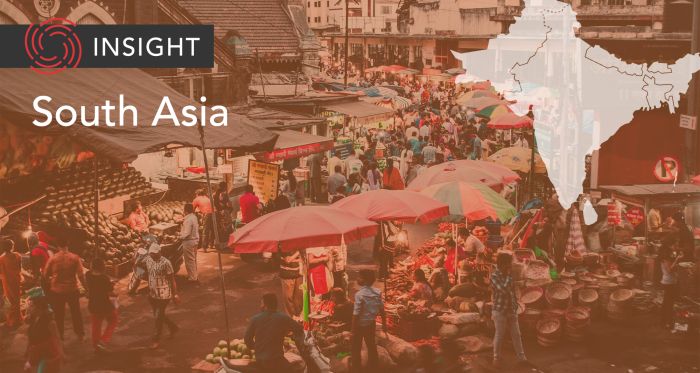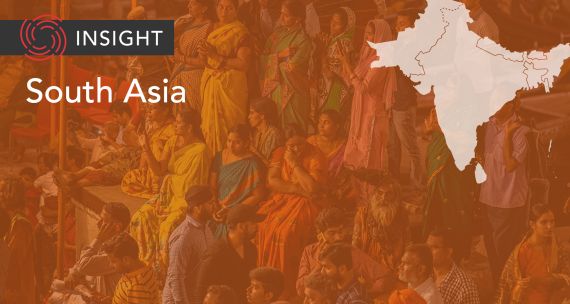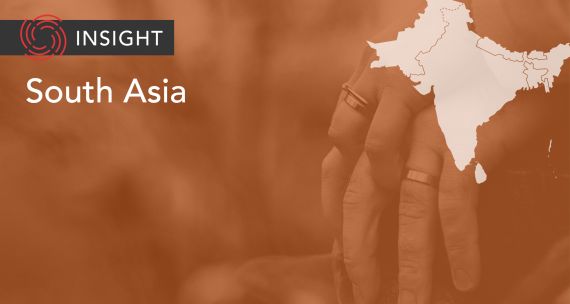The Takeaway
For 84 days, ethnic strife has engulfed the northeast Indian state of Manipur. The clashes have killed 125 people and displaced 60,000, ground the local economy to a halt, and disrupted the government’s plans to position the region as stable and geopolitically significant. As the 2024 Indian general election draws closer, the political future of Prime Minister Narendra Modi’s Bharatiya Janata Party (BJP) is also at stake as the Indian government’s framing of northeast Indian states as trade gateways and investment hubs may fall apart.
In Brief
On May 3, violent clashes broke out in Manipur, home to 3.01 million Indians, during a 'tribal solidarity march' organized by the All-Tribal Students' Union (Manipur), the apex body of the state’s tribal students. The march was in opposition to the longstanding request of the Meitei community to be added to the Scheduled Tribe (ST) category — an affirmative action policy for disadvantaged tribal (i.e. Indigenous) communities in India. The ST status would provide the Meitei people, a predominantly Hindu community, with various benefits such as access to forest land for farming, affordable bank loans, health care and educational facilities, and government jobs. Existing tribes, especially the minority Kuki community, continue to oppose this demand, arguing that a tribal status for the majority Meitei community would strengthen its already strong influence in the region, along with permitting members to buy land in Kuki-dominated areas.
Implications
- Human rights concerns: Since the ethnic clashes first broke out in Manipur, more than 60,000 people have been displaced. At least 125 people have died due to the ongoing violence and more than 300 have been injured. The clashes in Manipur attracted national attention after a leaked video of an alleged May 4 gang rape by an apparently Meitei mob of two Kuki tribal women garnered local and global media attention. The incident sparked a public outcry and highlighted how women’s bodies can become targets of male violence in politically charged conflicts. Concerns for women’s rights and safety reverberated throughout the country and shed a light on the ongoing tensions in the state.
- Role of India’s Northeast in geopolitics: Manipur and other northeast Indian states are geopolitically and culturally unique from the rest of India due to their topography, porous international borders, and significant tribal populations. When the BJP came to power in the 2014 national election, it launched the Act East Policy 2014, a diplomatic initiative to strengthen economic and social relations with other countries in the Asia Pacific region. This policy is intertwined with the development of northeast India as a trade and investment hub, particularly in the connectivity, tourism, water, and agriculture sectors, and as a gateway to Southeast Asia. The case of Manipur demonstrates how identity and ethnic violence can disrupt the Indian government’s best-laid developmental and political plans for the broader region.
- Economic impacts of the civil unrest: Following an order from the Manipur government on May 3, a statewide internet shutdown was imposed to suspend mobile data services. This was later upgraded to a blanket ban on all internet services. After 60 days of the internet shutdown, the state saw an overall economic loss due to restrictions on mobility, communication, business, education, and medical and government services. Manipur already suffers from one of the highest unemployment rates in India at nine per cent, almost double the national average of 4.1 per cent. As Manipur’s tertiary sector is the highest contributor to the state’s GDP, the civil unrest has further curbed opportunities for unemployed youth as several service sectors have come to a standstill. The internet ban was partially lifted on July 25.
What’s Next
- Impact on upcoming national election
The BJP and its allies are currently in power in all seven northeast Indian states, either directly or through coalition alliances. In Manipur, the BJP won 38 per cent of the vote in 2022. Manipur Chief Minister N. Biren Singh, a member of the BJP, is under scrutiny for his alleged mishandling of the escalating crisis and for pushing the Meitei tribe’s agenda due to his personal affiliation with the Meitei community. It is unlikely that Modi, who broke his silence on the issue of unrest in Manipur after the leaked videos went viral, will break his alignment with Singh over these criticisms. But Singh may prove a liability for the BJP in the 2024 Indian general election, considering the recent violence has been so extreme and has brought the longstanding issue of government neglect of tribal communities to the fore.
- Border and security concerns
The northeast’s proximity to China and position along the Line of Actual Control between the two countries also makes it strategically vulnerable, with the region being caught in the crossfire of India–China military disputes since 1962. In the tribal communities’ competing push for regional hegemony and participation in divisive politics in Manipur, the state will be left vulnerable to external intervention, especially by China, given Beijing’s previous support of insurgencies in northeast Indian states, motivated by territorial interests in the region. China’s possible intervention could pose a further threat to India’s regional and broader domestic security.
• Produced by CAST's South Asia team: Dr. Sreyoshi Dey (Senior Program Manager); Prerana Das (Analyst); Suyesha Dutta (Analyst); and Deeplina Banerjee (Analyst).




